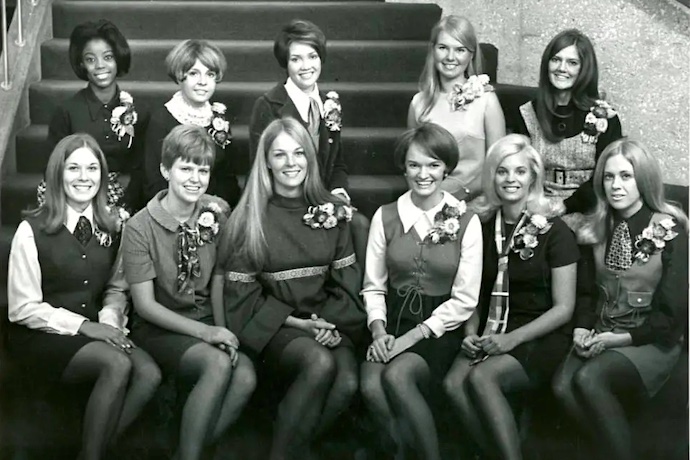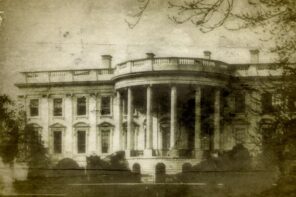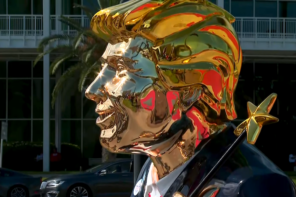In the course of his remarks to the Family Research Council’s “Pray Vote Stand Summit” on September 14, Southern Baptist Theological Seminary President Al Mohler drew familiar lines on some hot button issues, warning his audience not to “vote wrongly” in the upcoming midterm elections. “What’s at stake,” he said, “is unborn human life,” and “the integrity of marriage,” and “whether biological male means man and boy, and biological female means girl and woman.” To Mohler, the conservative position on each of these matters is so unequivocally correct and commonsensical that its defense demands the continued waging of cultural war against “the Left” in America, broadly and casually construed.
Throughout, Mohler’s speech demonstrated qualities that evangelical audiences have come to expect from their leaders: authority, certainty, simplicity, rigidity, and candor. These qualities have justified the argument—dating back at least as far as Dean Kelley’s Why Conservative Churches Are Growing in 1972—that evangelical success is owed to the stern moral demands that these churches make upon their congregants. A thesis that Mohler himself has endorsed, it contrasts evangelical moral rigor with the supposed laxity of the mainline Protestant denominations, which have subsequently declined.
Under scrutiny, however, Kelley’s argument—and Mohler’s endorsement—fall quickly into doubt. In his new book, Christianity’s American Fate: How Religion Became More Conservative and Society More Secular, historian David Hollinger turns the tables completely, arguing that evangelical churches grew during and after the 1960s precisely because they offered a less demanding alternative to the social justice and civil rights commitments of the liberal mainline.
To put it another way: at a time when liberal Protestant leaders were—to varying degrees of assertiveness—pressing their congregants to enlist in the fight against racism, sexism, ethnocentrism, inequality, bigotry, and war, evangelical leaders were relegating these matters to just outside the purview of Christianity proper.
It’s not that they approved of these vices, necessarily, or at least not all of them in every case. According to Hollinger, evangelical Christianity simply excused congregants from taking them seriously because evangelicalism “made it easy to avoid the challenges of an ethnoracially diverse society and a scientifically informed culture.”
Now, as historians Jemar Tisby, Anthea Butler, J. Russell Hawkins and Jesse Curtis have all shown in recent books, many white evangelicals were actively opposed to the civil rights movement—in particular, challenging equality for African Americans at every turn and basing their complaints on their reading of Scripture.
Later, when that position became increasingly unpalatable to public opinion, many of these shifted into the “colorblind” posture now preferred by conservatives writ large, denying that race has any social significance whatsoever and working to block measures—like Affirmative Action or critical race theory—that concede and respond to centuries of racist policymaking in America. But Hollinger stops short of suggesting that evangelicalism itself is inherently racist, instead observing that it gives white Christians a bit of a pass.
In this light, Mohler’s rigid moral posture is revealed as posturing. His clear, concise, and simplistic critiques of reproductive freedom, marriage equality, and nonbinary gender identification are cast in the same mold as his denomination’s historic opposition to civil rights and related issues.
Offered a chance to grapple with the complexities of systemic racism, Mohler’s forebearers said no. Pressed to examine and understand the evidence linking natural complexity to Darwinian evolution, they stuck with seven days. Pressed to think seriously about imperialism, colonialism, exploitation, and war, the white evangelical Christians of the late twentieth century simply doubled down on God-and-country. They truly were, as Jemar Tisby recounted in a recent viral tweet, “people who don’t have any questions.”
Someone who is not Christian described their general experience with white evangelicals as "people who don't have any questions." I immediately knew what they meant, and I'm going to thinking about that statement a long time.
— Jemar Tisby, PhD (@JemarTisby) September 13, 2022
And now, implored to examine honestly the intricate array of forces informing matters pertinent to sex and gender, Mohler and his team have again plugged their ears. Their position on each of these issues, as on so many others, is appealing to many because it peddles an easy answer in place of thoughtful questions. And the no-nonsense tone dresses this dodge in a morally serious guise.
This framing and delivery are facilitated, finally, by a further level of simplification that pits Mohler’s Christianity against the nefarious “Left.” To occupy the reasonable middle, Mohler must cast his opponents in extremity. But how extreme are they?
According to the Pew Research Center, 85 percent of Americans believe that abortion should be legal in some or all cases, effectively rejecting the sort of hardline ban that Mohler’s ultra-simplistic view requires him to defend. According to Gallup, 71 percent of Americans believe that same-sex marriage should be legally recognized with the same rights as heterosexual marriages, again breaking sharply with Mohler’s absolutist stance.
And, according to a survey released by Pew this summer, American attitudes toward gender identity are complex. Despite the fact that 61 percent believe gender identity is determined by sex at birth, about 80 percent agree that transgender people are discriminated against in American society, and 64 percent favor laws that would forbid such discrimination in jobs, housing, and public spaces. Though Americans are still working through their thoughts on sex and gender, their very thoughtfulness belies Mohler’s automatic rejection.
In casting liberal Protestants—or “ecumenicals”—as the more conscientious foil to American evangelicals, Hollinger neither valorizes nor glosses over their own weaknesses and failings. (He also devotes considerable attention to the important roles played by Jewish immigrants in fashioning liberal democracy in the United States.) But, in addition to offering an alternative explanation for growth and decline in the two largest Protestant branches, his careful portrait of the liberal-conservative dialectic in American Protestantism gives readers a clearer sense of how seriously to take Al Mohler—which is not very.





